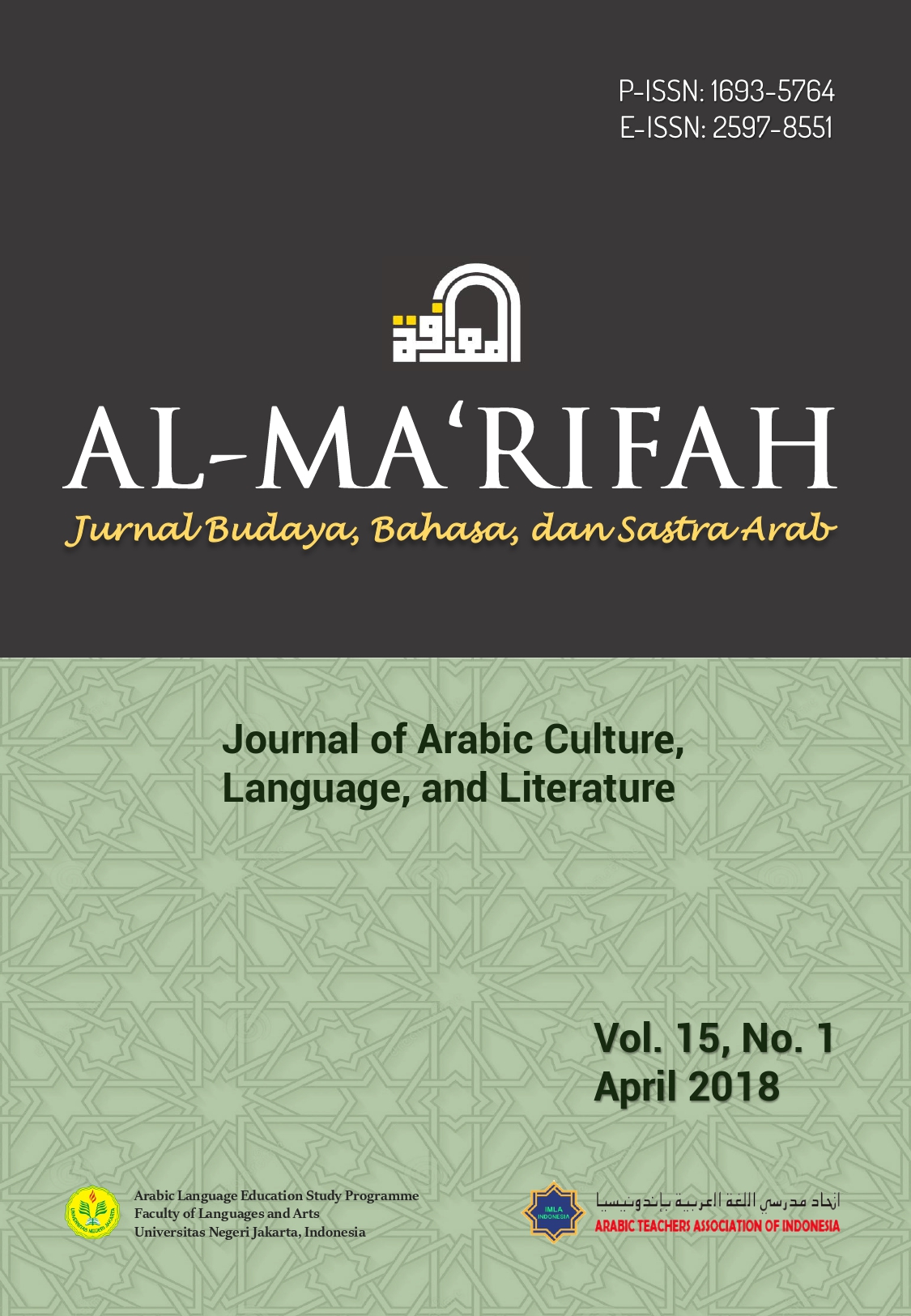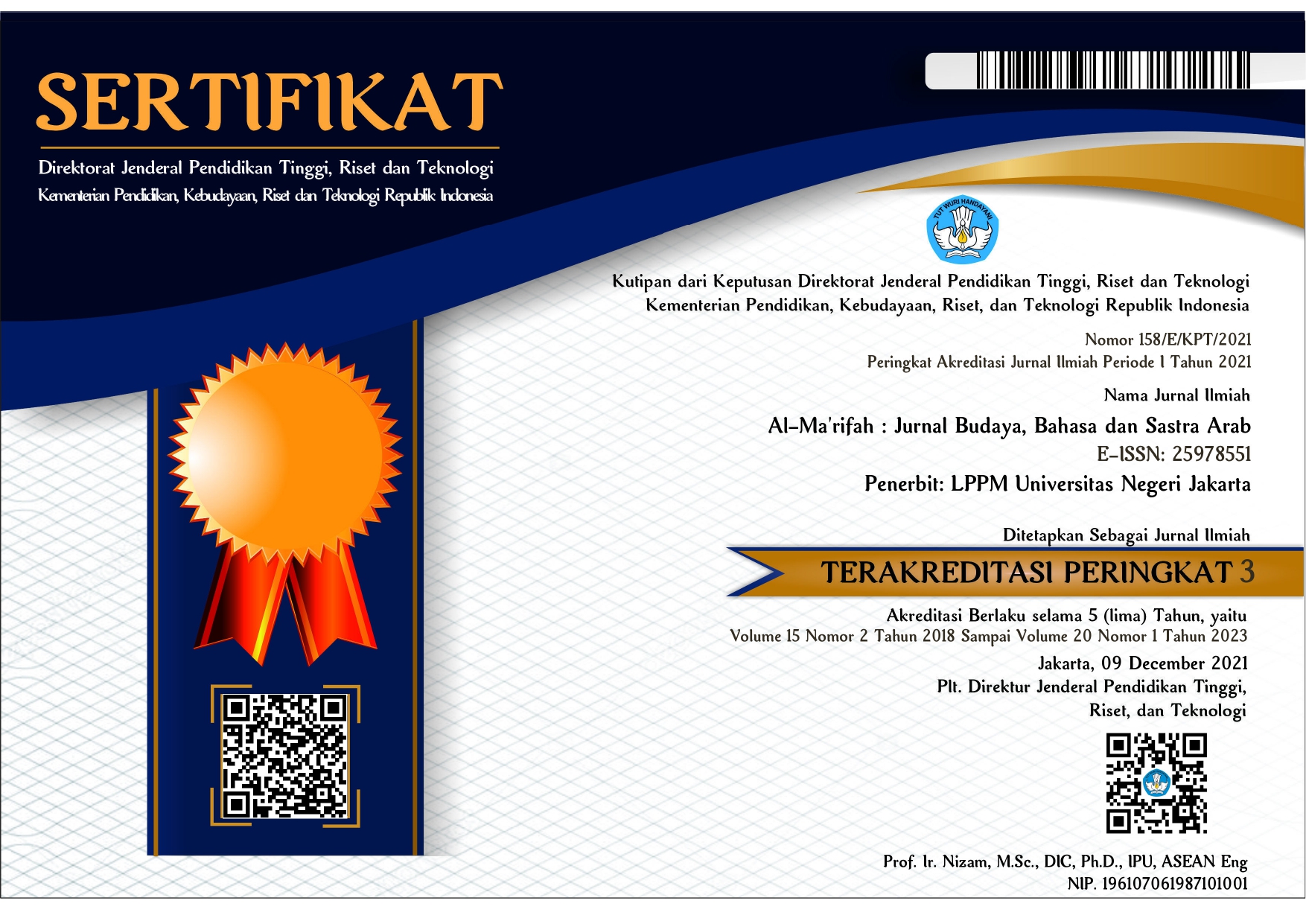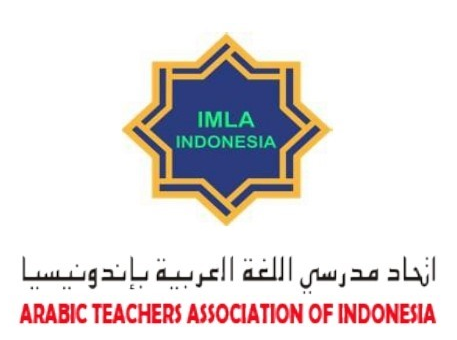Athar Istikhdām al-Qiṣṣah al-Iliktrūnīyah fī Tanmīyat Mahārāt al-Kitābah al-Nāqidah ladá Muta‘allimī al-Lughah al-‘Arabīyah al-Nāṭiqīna bi-Lughāt Ukhrá
DOI:
https://doi.org/10.21009/almakrifah.15.01.06Keywords:
Electronic story, critical writing, learners of Arabic language, non-native speakersAbstract
This research aims to help teachers identify the methods of how to develop critical writing skills among students enrolled in the second level of the Bachelor program which is offered by the Institute of Teaching Arabic to non-native speakers at Umm Al-Qura University. The research also aims at investigating the effects of using electronic story in developing Critical writing skills and keep pace with modern trends that rely on the use of technology in the development of critical writing skills. Lack of use of modern technology in developing the critical writing skills in addition to the lack of use of other skills related to the critical writing such as inference, investigation, conclusion, observation and evaluation in writing. The researcher used a semi-experimental approach. The research is resulted in creating a list of critical writing skills which is suitable for the second level of students enrolled in the Bachelor's program which is designed to prepare teachers of Arabic language to teach non-native Arabic speakers. There is a remarkable result also exist here, which is the effective impact on the use of electronic story in teaching non-native students enrolled in the Bachelor program of Arabic language teachers. Also, There are statistically significant differences at (0.05) among the average scores of the Arabic-speaking learners whose first language is not Arabic. These differences are between the control group and the experimental group in favor of the experimental group when testing the skills of critical writing.











